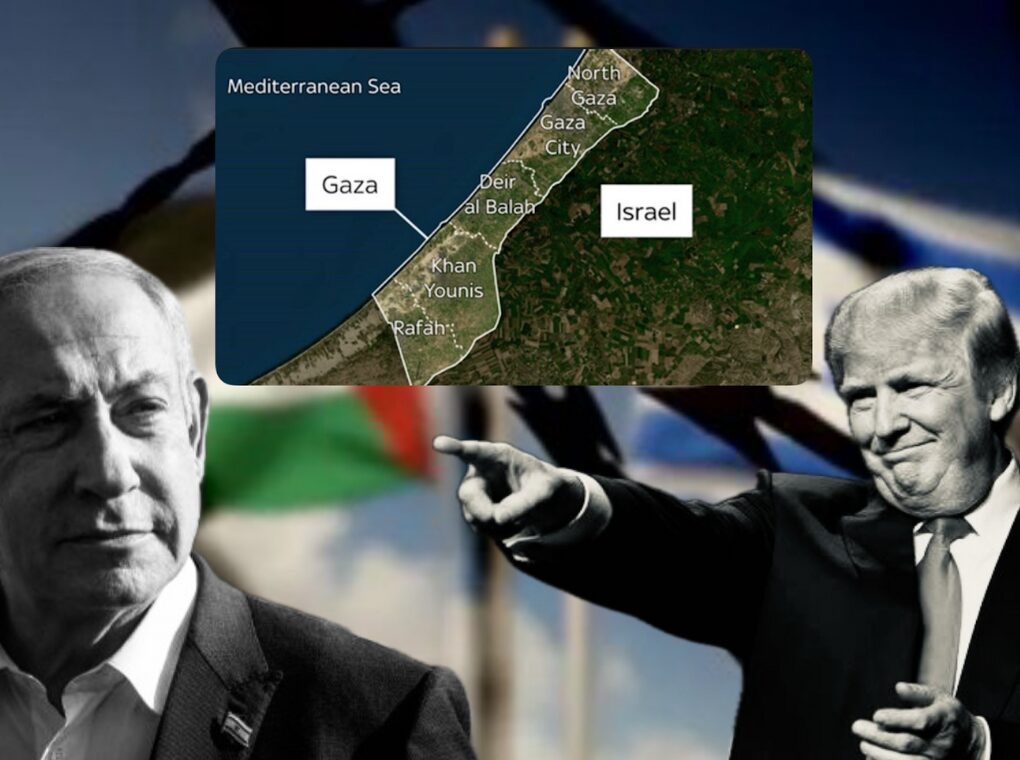U.S. President Donald Trump has hailed Israeli Prime Minister Benjamin Netanyahu as a “war hero” in the midst of Israel’s escalating confrontation with Hamas in Gaza. The timing of Trump’s praise is significant. Netanyahu, embattled at home and abroad, faces mounting criticism over the scale of Israel’s military response. For Trump to cast him in heroic terms offers both political cover and ideological alignment, reinforcing Trump’s longstanding alliance with the Israeli leader.
Trump’s language is not just about personal loyalty. It reflects his broader foreign policy approach; one built around strongman admiration and nationalist frames of legitimacy. By elevating Netanyahu as a wartime figure, Trump connects himself to Israel’s military posture, appealing directly to Republican constituencies that see Israel’s security as inseparable from U.S. interests.
Israel’s Expanding Military Plans
The backdrop to Trump’s remark is Israel’s latest military decision, one with major implications for the conflict. Israel’s defense minister has approved a plan to conquer Gaza City, signaling a shift from tactical operations toward full urban control. The defense ministry has also announced the call-up of around 60,000 reservists, with mobilization scheduled to begin in September.
This represents one of the largest troop deployments since the outbreak of the current conflict. Israel’s calculus is straightforward: Hamas is entrenched within Gaza City, and Israel believes dismantling this urban stronghold is crucial to breaking the militant group’s operational capacity.
Strategic and Humanitarian Dimensions
However, conquering Gaza City carries heavy military and humanitarian costs. Urban warfare in densely populated areas almost guarantees significant civilian casualties, infrastructure destruction, and international condemnation. While Israel frames the campaign as necessary to neutralize Hamas, critics warn such an operation risks deepening Gaza’s humanitarian catastrophe and radicalizing new generations.
The sheer scale of the mobilization—60,000 reservists—underlines how Israel is treating this not as a short-term flare-up but as a protracted campaign requiring sustained manpower and resources. For Israel, the drafting of reserves represents both urgency and determination, but it also reveals the limits of relying solely on technological superiority in asymmetric conflict.
Trump, Netanyahu, and the Optics of War
Trump’s portrayal of Netanyahu as a “war hero” feeds into a narrative that defends Israel’s most aggressive posture while downplaying international concerns. For Netanyahu, Trump’s endorsement is politically useful: it signals unwavering American support from a potential return president, even at a moment when the Biden administration faces pressure to balance solidarity with Israel against rising calls for restraint.
For Trump, the benefit is domestic. By standing firmly behind Netanyahu at a moment of maximum controversy, he solidifies his claim as a leader unafraid to take sides, distinguishing himself from cautious diplomatic hedging. It also strengthens his ties with evangelical voters, a core Republican base for whom support for Israel is a near-absolute.
International Repercussions
Israel’s decision to press deeper into Gaza City combined with Trump’s rhetorical backing raises the stakes for regional diplomacy. Arab states that normalized relations with Israel under the Abraham Accords may find themselves caught between strategic partnerships and public outrage. At the same time, a drawn-out campaign will test Western capitals, which may support Israel’s right to defense but struggle with the optics of a large-scale invasion and humanitarian fallout.
Trump’s declaration of Netanyahu as a “war hero” cannot be separated from the broader military realities now reshaping the Gaza conflict. Israel’s decision to call up 60,000 reservists and prepare for urban conquest represents a critical escalation, one that will likely define the trajectory of the war through the autumn. On one side, Trump’s words give Netanyahu symbolic reinforcement at a moment of military boldness. On the other, they underscore how tightly domestic politics in the U.S. and battlefield decisions in Israel remain intertwined.
